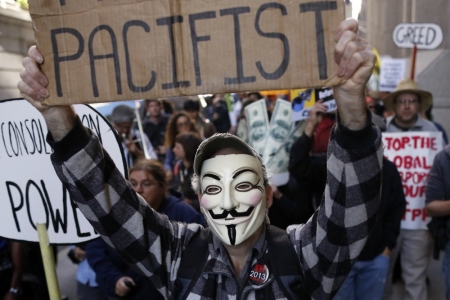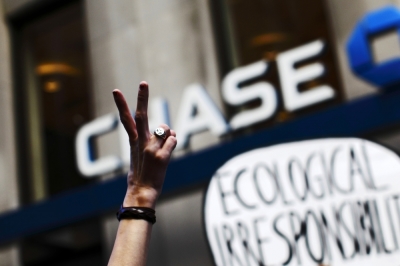Liberals Became Dark, Cultish, Intellectually Stifling, Dissident Liberals Complain

Some liberals are expressing regret over the oppressive political correctness regimes that liberals have implemented on college campuses and elsewhere.
The liberal activism of her college years was anti-intellectual, "vaguely cultish" and "the darkest chapter of my life," a self-described "queer activist" writing under the pseudonym Aurora Dagny wrote for The McGill Daily in November.
Dagny is among a number of recent liberal voices decrying the current liberal trend of stifling speech.
Writing about her school's new sexual harassment policy last month for The Chronicle of Higher Education, Laura Kipnis, a professor in the department of radio, television, and film at Northwestern University, wrote: "The new codes sweeping American campuses aren't just a striking abridgment of everyone's freedom, they're also intellectually embarrassing. Sexual paranoia reigns; students are trauma cases waiting to happen. If you wanted to produce a pacified, cowering citizenry, this would be the method. And in that sense, we're all the victims."

Liberal columnist Michelle Goldberg wrote about reactions to Kipnis' article for The Nation. Students are protesting the article, accusing Kipnis of violent, "inflammatory" and "terrifying" ideas, and calling for administrators to punish her.
"This atmosphere is intellectually stifling," Goldberg wrote.
In an email to Goldberg, Kipnis said she has received dozens of emails from professors, administrators, deans and one former college president "describing how fearful they are of speaking honestly or dissenting on any of these issues."
Intelligence Squared hosted a Feb. 24 debate at George Washington University on the question of whether "liberals are stifling intellectual diversity on campus." Two other dissident liberals spoke in favor of the motion — Greg Lukianoff, president of Foundation for Individual Rights in Education, and Kirsten Powers, a USA Today columnist and Fox News contributor.
Before the debate, only 33 percent of the audience agreed with Lukianoff and Powers. After hearing both sides, 59 percent agreed with them.
In her closing remarks, Powers said she used to live in a "liberal bubble" that made her unaware of her own prejudices. She only became aware of those prejudices after being exposed to diverse viewpoints, which happened after two separate events — going to work for Fox News and becoming a Christian.
Dagny described her time as a liberal activist in similar ways.
There are four core features of the type of liberal politics she is describing, Dagny wrote — dogmatism, groupthink, a crusader mentality, and anti-intellectualism.
Dogmatic in her beliefs, Dagny believed that anyone who disagreed with her was not just wrong, but stupid, depraved or "actively doing violence." "Internal disagreement was rare" in her "insular community" and "every minor heresy inches you further away from the group." These liberals develop a "crusader mentality" in which the world is "a battle between good and evil" and they believe "they are doing the secular equivalent of God's work." In this environment, personal experience is elevated above sound arguments.
"It is an ominous sign," Dagny continued, "whenever a political movement dispenses with methods and approaches of gaining knowledge that are anchored to public revelation and, moreover, becomes openly hostile to them. Anti-intellectualism and a corresponding reliance on innate knowledge is one of the hallmarks of a cult or a totalitarian ideology."
These remarks were echoed by dissident feminist Camille Paglia in a Thursday interview with Reason.
"The gender myopia, the gender monomania has become a disease, has become a substitute for a religion. ... It is impossible that the feminist agenda could ever the total explanation for human life. This is our problem now, this monomania, the identity politics of the 1970s, so people see everything through the lens of race, or gender, or social class. This is madness, absolute madness," she said.
It was only after spending some time away from her liberal activism that Dagny came to realize the dogmatism, groupthink, crusader mentality and anti-intellectualism she was a part of.
"Almost by accident," she wrote, "I took time off from being an activist. I spent time just trying to be happy and at peace, far away from Montreal. It had been a long while since I had the time and the freedom to just think. At first, I pulled on a few threads, and then with that eventually the whole thing unraveled. Slowly, my political worldview collapsed in on itself."
After that, she continued, her formerly "bleak" worldview that made the world seem "grey and hopeless" was now "filled with colour." The change "was extremely liberating." She "became a happier person," and, she believes, "a better person."





















